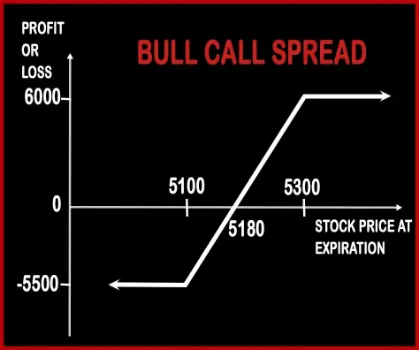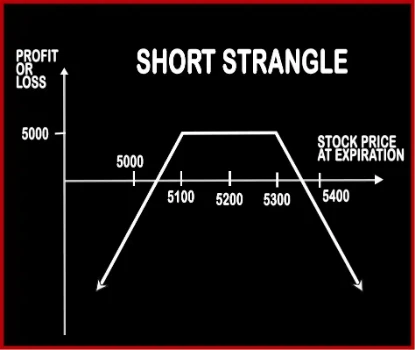Compare Strategies
| BULL CALL SPREAD | SHORT STRANGLE | |
|---|---|---|

|

|
|
| About Strategy |
Bull Call Spread Option StrategyBull Call Spread option trading strategy is used by a trader who is bullish in nature and expects the underlying asset to give decent returns in the near future. This strategy includes buying of an ‘In The Money’ Call Option and selling of ‘Deep Out Of the Money’ Call Option of the same underlying asset and the same expiration date. |
Short Strangle Option StrategyThis strategy is similar to Short Straddle; the only difference is of the strike prices at which the positions are built. Short Strangle involves selling of one OTM Call Option and selling of one OTM Put Option, of the same expiry date and same underlying asset. Here the probability of making profits is more as there is a spread between the two strike prices, and if .. |
BULL CALL SPREAD Vs SHORT STRANGLE - Details
| BULL CALL SPREAD | SHORT STRANGLE | |
|---|---|---|
| Market View | Bullish | Neutral |
| Type (CE/PE) | CE (Call Option) | CE (Call Option) + PE (Put Option) |
| Number Of Positions | 2 | 2 |
| Strategy Level | Beginners | Advance |
| Reward Profile | Limited | Limited |
| Risk Profile | Limited | Unlimited |
| Breakeven Point | Strike price of purchased call + net premium paid | Lower Break-even = Strike Price of Put - Net Premium, Upper Break-even = Strike Price of Call+ Net Premium |
BULL CALL SPREAD Vs SHORT STRANGLE - When & How to use ?
| BULL CALL SPREAD | SHORT STRANGLE | |
|---|---|---|
| Market View | Bullish | Neutral |
| When to use? | This strategy is used when an investor is Bullish in the market but expect the underlying to gain mildly in near future. | This strategy is perfect in a neutral market scenario when the underlying is expected to be less volatile. |
| Action | Buy ITM Call Option, Sell OTM Call Option | Sell OTM Call, Sell OTM Put |
| Breakeven Point | Strike price of purchased call + net premium paid | Lower Break-even = Strike Price of Put - Net Premium, Upper Break-even = Strike Price of Call+ Net Premium |
BULL CALL SPREAD Vs SHORT STRANGLE - Risk & Reward
| BULL CALL SPREAD | SHORT STRANGLE | |
|---|---|---|
| Maximum Profit Scenario | (Strike Price of Call 1 - Strike Price of Call 2) - Net Premium Paid | Maximum Profit = Net Premium Received |
| Maximum Loss Scenario | Net Premium Paid | Loss = Price of Underlying - Strike Price of Short Call - Net Premium Received |
| Risk | Limited | Unlimited |
| Reward | Limited | Limited |
BULL CALL SPREAD Vs SHORT STRANGLE - Strategy Pros & Cons
| BULL CALL SPREAD | SHORT STRANGLE | |
|---|---|---|
| Similar Strategies | Collar | Short Straddle, Long Strangle |
| Disadvantage | • Limited profit potential to the higher strike call sold if the underlying stock price rises. • Maximum profit only if stock rises to the higher of 2 strike prices selected. | • Unlimited loss is associated with this strategy, not recommended for beginners. • Limited reward amount. |
| Advantages | • Allows you to reduce risk and cost of your investment. • When placing the spread, exit strategy is pre-determined in advance. • Risk is limited to the net premium paid. | • Higher chance of profitability due to selling of OTM options. • Advantage from double time decay and a contraction in volatility. • Traders can book profit when underlying asset stays within a tight trading range. |